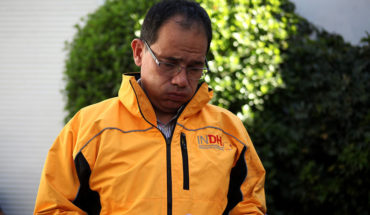
The Coronavirus COVID-19 pandemic has caused the vast majority of Chileans to experience in their own flesh the anguish and uncertainty with which the middle- and low-income population has experienced in recent decades. For no one is guaranteed to be treated promptly and properly if it is infected with the virus or have a critical bed if the disease becomes complicated. Many have also had to think about how they will pay off debts or renting if they lose their jobs, in case the companies they operate in fail to survive. A scenario for nothing unlikely.
This experience of extreme vulnerability, no doubt one of the engines of the social movement initiated just before this health crisis, is now common and massive. For the first time Chileans, without distinction, have the feeling of being adrift, witnessing how the state has “suggested” supermarkets not to raise the prices of basic inputs, in order to face the crisis without the swings of supply and demand; how he has devised ways for employers not to simply fire their workers on reasons of force majeure; or how, not by the legal means but those of goodwill, it has succeeded in getting the isapres to defer three months the increase in the value of their plans. People have seen their financial destinations fall out of banks’ willingness to defer mortgage payments, and have also witnessed the President dismiss the partial nationalization of companies that eventually receive public money to be saved, because it seems to him to be an ideological proposal.
It became undeniable that the system in which we operate is individualistic and is based on the maxim of the “save who can”. Similarly, the pandemic has revealed how much we need each other to save us, so as not to sink. The need to rethink our way of living and relating is clearly, and this is where collaboration has the opportunity to emerge as a paradigm of change.
What characterizes the paradigm of collaboration and that distinguishes it in its essence from individualism and also from healthcare, is that the problems and challenges – social, environmental, economic, among others – are solved together, thanks to an articulated action of the different sectors of society (public, private, civil society, academia and citizenship) and with a long-term view.
For any new pact to work, under a collaborative paradigm, it needs above all ties of trust, precisely one of the most weakened by individualism. But a good way to regain lost trust is for different sectors to recognize how they have helped to break with their own credibility and to restore or rethymence their roles, duties, and responsibilities forward. For example, the state has failed on a basic edge inherent in its role, that is, the provision of quality public goods: health, education and pensions. Hence, the fundamental thing about all efforts being focused on guaranteeing these rights, to overcome the precariousness, injustice, and human suffering they produce.
Another characteristic of the collaborative style is that it is based on dialogue, but not on a simple exchange of views but on a genuine openness, which implies being willing to transform the vision in pursuit of a common good. In other words, open yourself to the possibility of transforming to transform, taking advantage of the wealth that exists in the diversity of ideas and perspectives; without fear, but rather with the right, to make mistakes and to change their minds. Because reality is not rigid but dynamic, and the ways to take care of its problems, so are they.
The challenge is profound, because it is not simply a question of aiming for the creation of laws that force each other to act in a certain way in a time of crisis, it is that our institutions and regulations are the reflection of a people who knew the power of the community and the value of collaboration , which requires a deep cultural change. Only in this way can we shorten the abysmal distances that exist today between institutions and people, and build a more cohesive society capable of effectively taking over its gaps.
The content poured into this opinion column is the sole responsibility of its author, and does not necessarily reflect the editorial line or position of El Mostrador.





